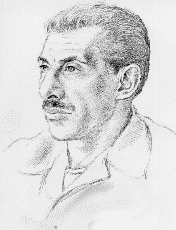
Idries Shah, also known as Idris Shah, né Sayed Idries el-Hashimi and by the pen name Arkon Daraul, was an Afghan author, thinker and teacher in the Sufi tradition. Shah wrote over three dozen books on topics ranging from psychology and spirituality to travelogues and culture studies.
A teaching story is a narrative that has been deliberately created as a vehicle for the transmission of wisdom. The practice has been used in a number of religious and other traditions, though writer Idries Shah's use of it was in the context of Sufi teaching and learning, within which this body of material has been described as the "most valuable of the treasures in the human heritage". The range of teaching stories is enormous, including anecdotes, accounts of meetings between teachers and pupils, biographies, myths, fairy tales, fables and jokes. Such stories frequently have a long life beyond the initial teaching situation and have contributed vastly to the world's store of folklore and literature.

The Naqshbandi is a major Sunni order of Sufism. Its name is derived from Baha-ud-Din Naqshband Bukhari. Naqshbandi masters trace their lineage to the Islamic prophet Muhammad through Abu Bakr, the first Caliph of Sunni Islam and Ali, the fourth Caliph of Sunni Islam. It is because of this dual lineage through Ali and Abu Bakr through the 6th Imam Jafar al Sadiq that the order is also known as the "convergence of the two oceans" or "Sufi Order of Jafar al Sadiq".
Omar Ali-Shah was a prominent exponent of modern Naqshbandi Sufism. He wrote a number of books on the subject, and was head of a large number of Sufi groups, particularly in Latin America, Europe and Canada.

Abū Yaʿqūb Yūsuf al-Hamadānī, best simply known as Yusuf Hamadani, was a Persian Sufi of the Middle Ages. He was the first of the group of Central Asian Sufi teachers known simply as Khwajagan of the Naqshbandi order. His shrine is at Merv, Turkmenistan.

Abdul Khaliq Ghijduvani was one of a group of Central Asian Sufi teachers known simply as Khwajagan of the Naqshbandi order.
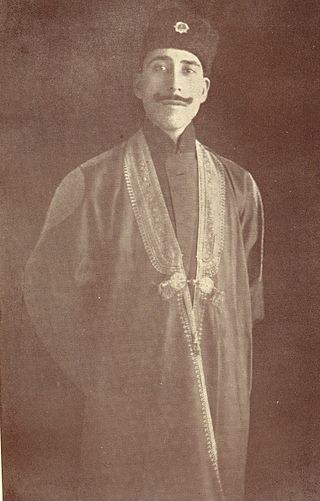
Sirdar Ikbal Ali Shah was an Indian-Afghan author and diplomat descended from the Sadaat of Paghman. Born and educated in India, he came to Britain as a young man to continue his education in Edinburgh, where he married a young Scotswoman.

The Teachers of Gurdjieff is a book by Rafael Lefort that describes a journey to the Middle East and central Asia in search of the sources of G. I. Gurdjieff's teaching, and culminates in the author's own spiritual awakening, by meeting and "opening" to the teachings of the Naqshbandi Sufis. The author's search finally leads him to the Sarmoun monastery in Northern Afghanistan where Gurdjieff had been previously taught.

Saira Elizabeth Luiza Shah was a Scottish writer who wrote under the pen name Morag Murray Abdullah. She met the Pashtun author, poet, diplomat, scholar, and savant Sirdar Ikbal Ali Shah and wrote about her marriage to this chieftain's son and her travels in the North-West Frontier Province of British India and the mountains of Afghanistan.
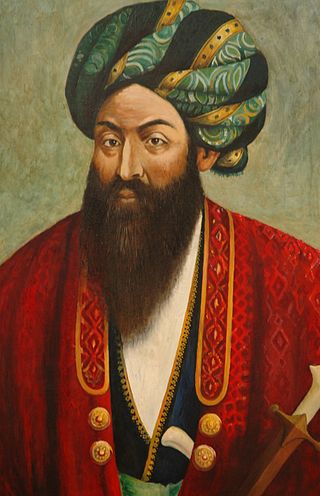
Saiyed Muhammed Shah, better known by his title as Jan-Fishan Khan, was a 19th-century Afghan warlord. He participated in the First Anglo-Afghan War (1839–42) and the Indian Rebellion of 1857, and on both occasions, he supported the British. For his services to the British, Khan was granted the estate of Sardhana and is the forefather of the Nawabs of Sardhana.
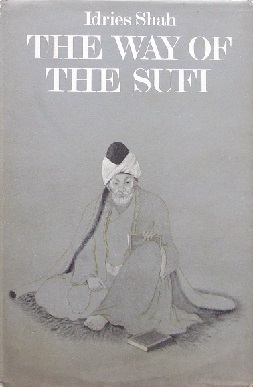
The Way of the Sufi was the best-selling follow-up introduction to Sufism by the writer Idries Shah after the publication of his first book on the subject, The Sufis. Whereas The Sufis eschewed academic norms such as footnotes and an index, The Way of the Sufi provided a full section of notes and a bibliography at the end of its first chapter, entitled "The Study of Sufism in the West".

A Perfumed Scorpion is a non-fiction book by the Sufist writer, Idries Shah, that was first published by Octagon Press in 1978, the same year that he published two other major works: Learning How to Learn: Psychology and Spirituality in the Sufi Way and The Hundred Tales of Wisdom.
Octagon Press was a cross-cultural publishing house based in London, UK. It was founded in 1960 by Sufi teacher, Idries Shah to establish the historical and cultural context for his ideas. The company ceased trading in 2014.

The Shattari or Shattariyya are members of a Sufi mystical tariqah that originated in Persia in the fifteenth century C.E. and developed, completed and codified in India. Later secondary branches were taken to Hejaz and Indonesia. The word Shattar, which means "lightning-quick", "speed", "rapidity", or "fast-goer" shows a system of spiritual practices that lead to a state of "completion", but the name derives from its founder, Sheikh Sirajuddin Abdullah Shattar.

Khwaja Haji Dost Muhammad Qandhari was an Afghan Sufi master in the Naqshbandi tradition in the 19th century (1801–1868).

Hazrat Mawlana Pir Fazal Ali Shah Qureshi was an Islamic scholar and the leading Naqshbandi Shaikh of colonial India in the early twentieth century. He was born to Murad Ali Shah in 1270 AH in Daud Khel, Punjab, and died at 84 in the first night of Ramadan 1354 AH and was buried at Miskeenpur shareef, district Muzaffargarh, Punjab.

Akhundzada Peer Saif ur Rahman Mubarak also known as Mubarak Sahib (1925–2010) was a Sufi scholar of the Naqshbandi Mujaddadi Tariqa, the founder of the Silsila Naqshbandi Mujaddidi Saifia. He adhered to the Sunni Maturidi aqeedah and practised the Hanafi school of Islam.

Lataif-e-sitta are special organs of perception in Sufi spiritual psychology, subtle human capacities for experience and action. Depending on context, the lataif are also understood to be the corresponding qualities of that experience or action.

Sufism in Bangladesh is more or less similar to that in the whole Indian subcontinent. India, it is claimed, is one of the five great centers of Sufism, the other four being Persia, Baghdad, Syria, and North Africa. Sufi saints flourished in Hindustan (India) preaching the mystic teachings of Sufism that easily reached the common people, especially the spiritual truth seekers in India. Sufism in Bangladesh is also called pirism, after the pirs or teachers in the Sufi tradition.
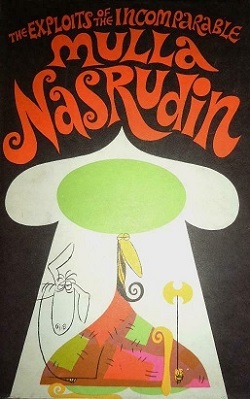
The Exploits of the Incomparable Mulla Nasrudin is a book by the writer Idries Shah, It consists of jokes and anecdotes involving the wise fool of Middle Eastern folklore, Mulla Nasrudin. Published by Octagon Press in 1966, the book was re-released in paperback, ebook and audiobook editions by The Idries Shah Foundation in 2014 and 2015.












